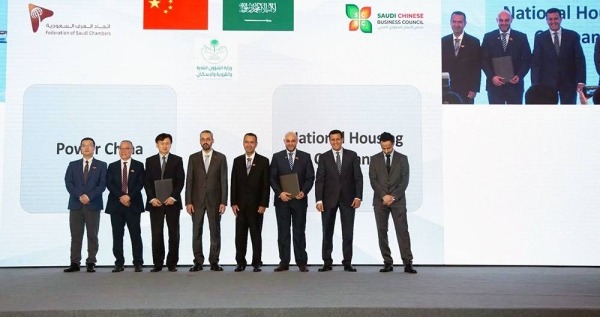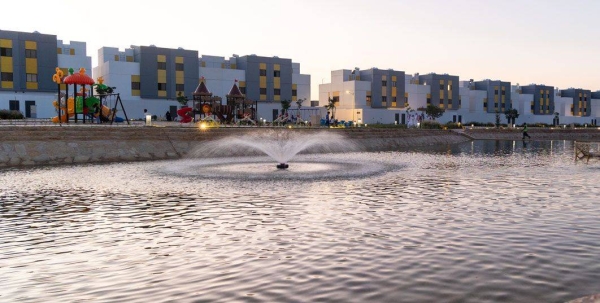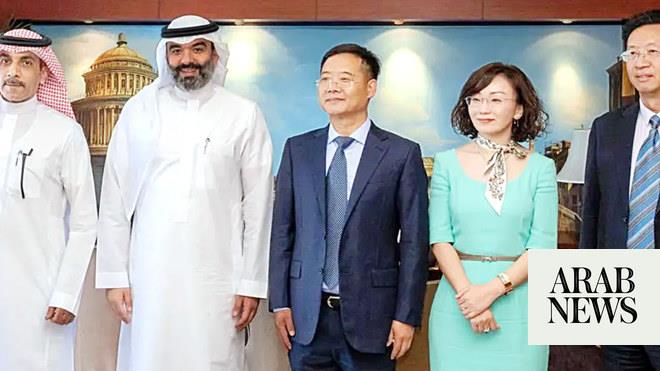
2022 turned out to be the year when Sino-Saudi collaborative projects in various fields truly prospered
China seeking to bolster its energy ties with the Gulf countries to secure adequate oil supply
RIYADH: Saudi-Chinese ties have prospered in 2022 amid the high cooperation efforts between the countries across various fields, including aviation, energy, tourism, artificial intelligence, technology and more.
On Nov.27, Saudi Arabia’s deputy foreign minister met with the Chinese ambassador to the Kingdom in Riyadh, Saudi Press Agency reported.
During the meeting, Waleed Al-Khuraiji and Chen Weiqing reviewed bilateral relations and ways of enhancing them to serve common interests. They also discussed issues of common interest.
Aviation
Earlier this year, in October, Saudi Arabia and China signed a memorandum of understanding to boost the number of flights and stations between the two countries.
The MoU also aims to promote air traffic growth further and bolster cooperation in the air transport sector field between both countries, Zawya reported.
Energy
In September, the regional organization Arab League announced the first of its kind Arab-China summit to be hosted by Saudi Arabia in December, reflecting a milestone in the strategic collaboration between Arab countries and the Asian giant.
According to Hong Kong-based newspaper South China Morning Post, Beijing is seeking to bolster its energy ties with the Gulf countries to secure sufficient supply.
Tourism
In September, the Saudi Tourism Authority and Shanghai-based financial firm UnionPay signed an MoU to boost the number of Chinese visitors to Saudi Arabia.
Under the agreement, the Chinese state-owned financial services company will facilitate payment operations within the Kingdom for UnionPay card holders, the Saudi Press Agency reported.
Culture
As part of Saudi-Chinese cultural cooperation, King Abdulaziz Public Library signed an MoU and collaboration with the Bayt El-Hekma Chinese Group in April.
The agreement aims to enhance cooperation between Saudi Arabia and China in different cultural, knowledge, and language fields of interest to both sides.
It also includes exchanging publication services and cultural visits between the two countries, besides holding scientific meetings and specialized exhibitions and activating cultural commonalities through forums.
Artificial Intelligence
In March, Riyadh-based aerospace company TAQNIA and solution provider TAQNIA ETS signed an MoU with Chinese aerospace firm Star Vision to elevate the space sector’s supply chain and work hand in hand on artificial intelligence applications and technologies.
Under the MoU, all parties will participate in collaborative research and work together to facilitate the development of top-notch space technologies, satellites, and geospatial products, trade publication Times Aerospace reported.
The MoU aims to introduce localized services and products that align with the Kingdom and the region’s strategic space and geospatial industry.
Technology
In March, Saudi Advanced Communications and Electronics Systems Co., ACES, partnered with China Electronics Technology Group to manufacture unmanned aerial vehicle payload systems in the Kingdom.
Under the partnership, China Electronics Technology Group, the state-owned defense conglomerate specializing in dual-use electronics, aims to aid ACES in establishing a research and development center and manufacturing team for various types of unmanned aerial vehicle payload systems.
Oil
In March, a Saudi Arabian Oil Co. unit signed an initial agreement with China Petroleum & Chemical Corp., known as Sinopec, for potential downstream collaboration in China.
The subsidiary, Saudi Aramco Asia Company Ltd., and Sinopec aim to support Fujian Refining and Petrochemical Co. in conducting a feasibility study into the optimization and expansion of capacity, according to a statement.
Building & Construction
In January, Saudi Aramco and the China Building Materials Academy announced plans to launch a new Nonmetallic Excellence and Innovation Center collaboratively.
Also referred to as NEXCEL, the new center will be based in Beijing and advance the use of nonmetallic materials in the building and construction sector.











